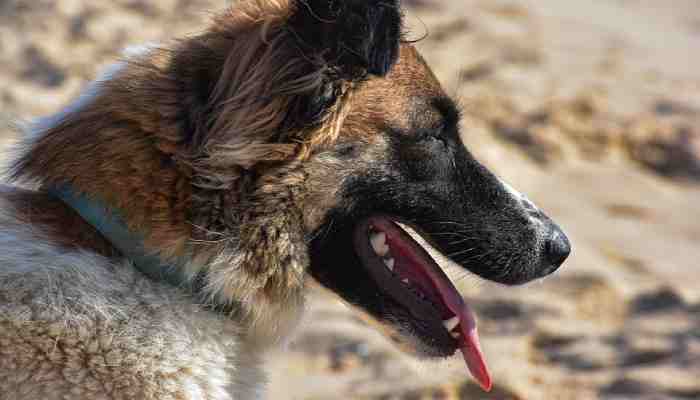Are you concerned that your animal friend will eventually lose their teeth? Dog tooth loss is a common and significant disease that can result in excruciating oral health issues. But do not worry! You can contribute to maintaining your dog’s mouth’s health and happiness by being aware of the typical reasons for tooth loss. Here, we’ll examine the main causes of canine tooth loss and discuss what you may do to stop it. Don’t let these prevalent causes go unrecognised; continue reading to find out more.
I. Dental Disease
Dental disease is one of the leading causes of tooth loss in dogs. But did you know that this condition can be prevented with proper oral care? In this article, we’ll explore the common types of dental disease in dogs and what you can do to keep your furry friend’s mouth healthy. From plaque and tartar buildup to gum disease and tooth decay, we’ll cover it all. Don’t let dental disease take a bite out of your dog’s smile – read on for more!
– Plaque and tartar buildup are the silent enemies of your dog’s dental health. These sticky substances accumulate on the teeth over time and can lead to serious oral health problems, including gum disease and tooth loss. But the good news is that they’re easily preventable with proper oral care. Regular brushing, dental chews, and professional cleanings can help keep plaque and tartar at bay. Don’t let these sneaky culprits take over your dog’s mouth – take action today and keep those pearly whites shining bright.
– Gum disease is a common and often unnoticed issue in dogs that can have serious consequences for their overall health. This condition occurs when plaque and tartar buildup irritate the gums, causing them to become inflamed and potentially lead to tooth loss. Symptoms of gum disease in dogs include red, swollen gums, bad breath, and a decrease in appetite.
– Tooth decay is more than just a cavity in humans – it’s a serious problem for dogs too! This condition occurs when plaque and bacteria cause the enamel on your dog’s teeth to break down and the inner layer of the tooth to become infected. Left untreated, tooth decay can lead to severe pain and tooth loss. But the good news is that it’s preventable with proper oral care. Regular dental check-ups, brushing, and dental chews can help keep your dog’s teeth strong and healthy.
II. Trauma
Trauma is a common cause of tooth loss in dogs, but it doesn’t have to be. Whether it’s due to rough play, accidental injury, or a blow to the mouth, trauma to the face can have serious consequences for your dog’s dental health. In this article, we’ll explore the causes and effects of trauma on your dog’s teeth, and what you can do to prevent it.
– Accidental Injury or Blows to the Mouth: Accidents can happen anywhere and at any time. From chasing a ball to rough-housing with other dogs, a blow to the mouth can result in serious dental problems, including fractures and dislocated teeth. If you suspect that your dog has suffered a traumatic injury, seek veterinary care immediately.
– Fractured Teeth are a common result of trauma to the mouth and can range from simple chips to complex fractures that reach the root of the tooth. This type of injury can cause significant pain and lead to tooth loss if left untreated. If you notice that your dog is having trouble eating or appears to be in pain, take them to the vet for a thorough exam.
III. Genetics
When it comes to your dog’s dental health, genetics can be both a blessing and a curse. While some breeds are predisposed to strong, healthy teeth, others are at a higher risk for tooth loss and other dental problems. In this article, we’ll explore the connection between genetics and tooth loss in dogs and what you can do to keep your furry friend’s teeth healthy.
– Jaw Size and Bite: One of the most significant factors in your dog’s dental health is the size and shape of their jaw. Dogs with smaller jaws or underbites are at a higher risk for tooth loss, as their teeth are often overcrowded and more prone to injury. On the other hand, dogs with larger jaws and scissor bites have a lower risk of tooth loss, as their teeth are better able to withstand the forces of chewing and biting.
– Breed-Specific Dental Problems: In addition to jaw size and bite, certain breeds are predisposed to specific dental problems. For example, toy breeds like Chihuahuas and Pomeranians are prone to retained baby teeth, which can lead to tooth loss and misalignment. Meanwhile, breeds like bulldogs and pugs are prone to overbites and crowded teeth, which can make it difficult for them to maintain proper dental hygiene.
IV. Nutritional Factors
What dogs eat can be just as important as genetics as certain nutritional factors can contribute to tooth loss and other dental problems, however with the right diet, you can help keep your pup’s teeth healthy and strong. Let’s explore the connection between nutrition and tooth loss in dogs.
– Lack of Minerals: A diet that’s deficient in certain minerals, such as calcium and phosphorus, can lead to weak and brittle teeth that are more prone to injury and loss. To help keep your dog’s teeth strong, make sure their diet includes enough of these important minerals.
– Starchy Foods: like kibble and biscuits, can stick to your dog’s teeth and provide the perfect environment for bacteria to grow. Over time, this bacteria can lead to plaque and tartar buildup, which can cause gum disease and tooth loss. To help keep your dog’s teeth healthy, consider a diet that’s low in starches and high in protein.
– Sugary Treats: Just like in humans, sugary treats can be bad for your dog’s teeth. The sugar provides food for the bacteria in your dog’s mouth, which can lead to plaque and tartar buildup and an increased risk of tooth decay and gum disease. To help keep your dog’s teeth healthy, avoid giving your dog sugary treats and opt for low-sugar, dental-friendly treats instead.
V. Age
As dogs age, their dental health can decline, and tooth loss can become a common issue. As the gums weaken with age, they become more susceptible to gum disease, which can lead to tooth loss. Along with gum disease, other factors like tooth decay and injury can also contribute to tooth loss in senior dogs. However, with proper care and attention, you can help keep your senior dog’s teeth healthy and strong. Regular dental check-ups and cleanings, a balanced diet, and proper oral care can all help prevent tooth loss in ageing dogs. Consider offering a variety of chews, such as bones and rawhide, to help remove plaque and tartar and keep your dog’s teeth clean. Avoid starchy foods and sugary treats that can contribute to plaque and tartar buildup. By taking these proactive steps, you can help ensure your senior dog has a healthy and happy smile for years to come. Don’t let age be a factor in your dog’s dental health, be proactive and help keep their teeth strong and healthy.


